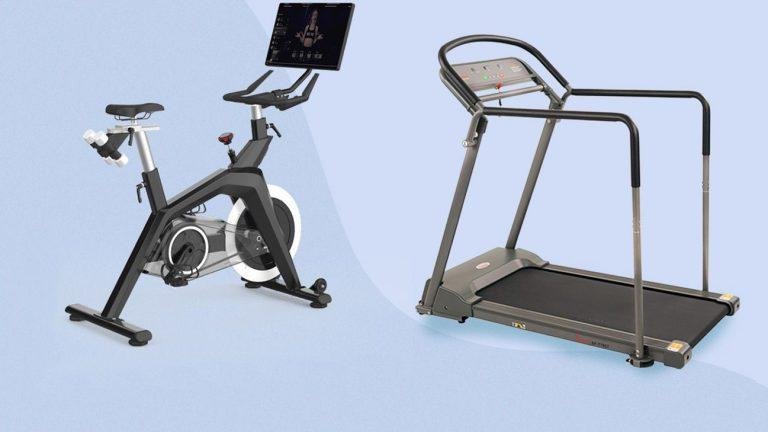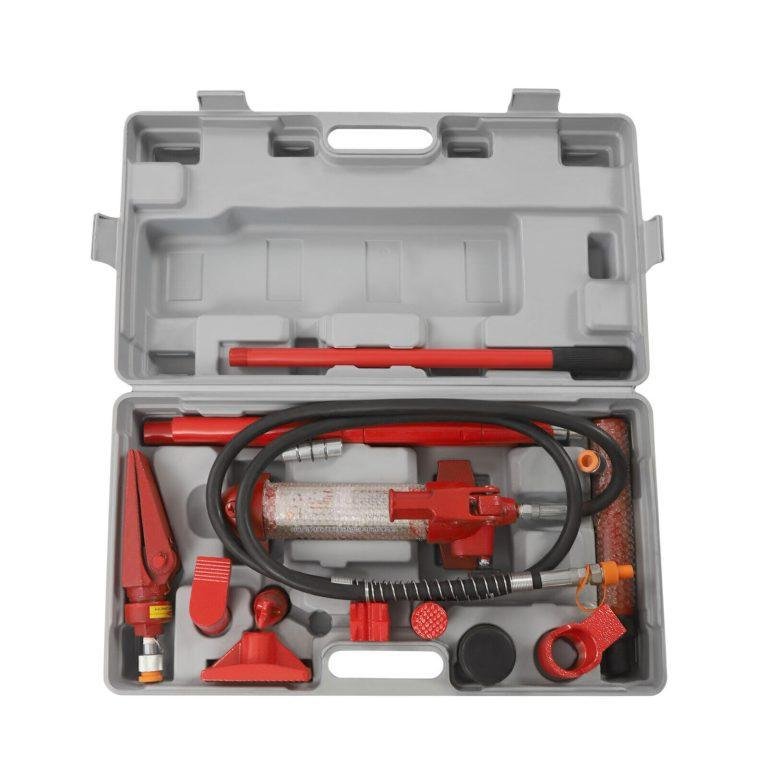Synthetic winch rope is worth it due to its superior strength, durability, and lightweight design. Unlike traditional steel cables, synthetic winch ropes are safer, easier to handle, and less likely to cause injury or damage during use.
With its numerous benefits, synthetic winch rope is a reliable and effective choice for off-road enthusiasts, recovery operations, and general winching applications. Synthetic winch rope offers a significant advantage over steel cables for several reasons. First, synthetic ropes are much lighter, making them easier to work with and reducing strain on the winch.
Additionally, synthetic ropes are less likely to kink or develop sharp frays, providing a longer lifespan and requiring less maintenance. Furthermore, synthetic winch ropes are safer in the event of a failure, as they do not snap back with the same force as steel cables, minimizing the risk of injury. Overall, investing in synthetic winch rope is a wise choice for those seeking a safer, more efficient winching experience.

Credit: ropersrope.com
Advantages Of Synthetic Winch Ropes
Synthetic winch ropes offer numerous advantages, making them worth the investment. They are lightweight, strong, and more resistant to abrasion compared to traditional steel cables. Additionally, they are safer to use as they do not recoil when broken. Overall, choosing a synthetic winch rope provides improved performance and reliability.
Synthetic winch ropes are gaining popularity among off-roaders and outdoor enthusiasts due to their numerous advantages over traditional steel cables. If you’re wondering whether synthetic winch rope is worth it, let’s dive into the advantages that make it a top choice for many:
Lighter Weight For Increased Portability
- Synthetic winch ropes are significantly lighter than their steel cable counterparts, making them easier to handle and transport.
- With less weight to lug around, you can enjoy greater portability and convenience when setting up your winching operations.
- The reduced weight also puts less strain on your winch, increasing its efficiency and lifespan.
Higher Strength-To-Weight Ratio For Improved Performance
- One of the key advantages of synthetic winch ropes is their exceptional strength-to-weight ratio.
- These ropes are constructed using high-tech fibers like dyneema, spectra, or synthetic blends, resulting in superior strength.
- The heightened strength means synthetic winch ropes can handle heavy loads, often outperforming steel cables of the same diameter.
- Enjoy greater confidence and performance during winching operations, knowing your synthetic winch rope can withstand demanding challenges.
Enhanced Safety Features For User Protection
- Safety is a top priority when it comes to off-roading and winching activities.
- Synthetic winch ropes offer several safety features that make them an excellent choice.
- Unlike steel cables, synthetic ropes do not store energy when under tension. This means that in the event of a rope failure, they won’t snap back dangerously.
- Synthetic winch ropes are also less prone to splintering or fraying, reducing the risk of injury to the user.
- Additionally, these ropes are more flexible than steel cables, decreasing the likelihood of recoil accidents.
The advantages of synthetic winch ropes, including their lighter weight, higher strength-to-weight ratio, and enhanced safety features, make them a worthy investment for anyone looking to improve their winching setup. With their portability, performance, and user protection, synthetic winch ropes are a reliable and effective choice for off-road enthusiasts and professionals alike.
Remember, always prioritize safety when operating winching equipment, and ensure you follow proper guidelines for the specific winch and rope you choose to use.
Now that we’ve explored the advantages of synthetic winch ropes, let’s dive into the factors to consider when selecting the right rope for your winching needs. Stay tuned for our next blog post!
Factors To Consider Before Choosing Synthetic Winch Ropes
When selecting synthetic winch ropes, it’s important to consider factors like durability, strength, and safety. These high-quality ropes offer numerous advantages over their traditional counterparts, making them a worthwhile investment for your winching needs.
Synthetic winch ropes have gained popularity in recent years due to their numerous advantages over traditional steel cables. However, before investing in synthetic winch ropes, there are several factors you should consider. Let’s explore the key aspects you need to keep in mind:
Durability And Longevity:
- Synthetic winch ropes are typically constructed using high-strength fibers like dyneema or spectra, making them incredibly durable and long-lasting.
- These ropes are resistant to uv radiation, moisture, and abrasion, ensuring they maintain their strength and performance even in harsh conditions.
- Compared to steel cables, synthetic ropes are less prone to fraying and damage, resulting in a longer lifespan and reduced maintenance requirements.
- The flexibility of synthetic ropes allows them to absorb energy more effectively, minimizing the risk of sudden snaps or rebounds.
Compatibility With Different Winch Types:
- Synthetic winch ropes are compatible with most winch types, including electric, hydraulic, and mechanical winches.
- They can be easily installed on various types of winch drums, providing a versatile solution.
- Lighter and more flexible than steel cables, synthetic ropes put less strain on the winch and other components, extending their lifespan.
- It is crucial to consider the recommended diameter and maximum load capacity of the winch when selecting a synthetic rope to ensure compatibility.
Cost Comparison With Steel Cables:
- While the initial cost of synthetic winch ropes may be higher than steel cables, they offer better long-term value due to their durability and longevity.
- Synthetic ropes require less maintenance, eliminating the need for periodic lubrication and reducing overall operating costs.
- The lightweight nature of synthetic ropes can also lead to fuel efficiency improvements, particularly when used in off-road vehicles or large-scale operations.
- Considering the reduced risk of injury compared to steel cables, synthetic ropes can lead to potential cost savings associated with workplace safety and insurance.
When evaluating whether synthetic winch rope is worth it, considering factors such as durability and longevity, compatibility with different winch types, and cost comparison with steel cables is essential. By carefully assessing these aspects, you can make an informed decision that aligns with your specific needs and maximizes the benefits of synthetic winch ropes.
Synthetic Winch Rope Vs Steel Cable: A Comparative Analysis
With a comparative analysis between synthetic winch rope and steel cable, this article aims to determine whether synthetic winch rope is worth the investment. Gain insights into the pros and cons and make an informed decision for your winching needs.
Synthetic winch rope and steel cable are two popular options for winching applications. Each has its own advantages and considerations that users should be aware of. In this section, we will compare synthetic winch rope and steel cable in terms of breaking strength and load capacity, flexibility and ease of handling, resistance to abrasion and uv damage, moisture resistance and corrosion prevention, and noise reduction during operation.
Breaking Strength And Load Capacity:
- Synthetic winch rope: Synthetic winch ropes are known for their impressive breaking strength, often surpassing that of steel cable. They have the ability to withstand heavy loads and provide reliable performance in various winching scenarios.
- Steel cable: Steel cables are renowned for their exceptional strength and load capacity. They are typically used in heavy-duty applications that require high load-bearing capabilities.
Flexibility And Ease Of Handling:
- Synthetic winch rope: Synthetic winch ropes are lightweight and highly flexible, making them easier to handle and manipulate during winching operations. They are also less prone to kinking and tangling, providing a smoother winching experience.
- Steel cable: Steel cables, although strong, can be heavy, stiff, and prone to kinks and tangles. Handling steel cable requires more effort and can be less user-friendly compared to synthetic winch rope.
Resistance To Abrasion And Uv Damage:
- Synthetic winch rope: Synthetic winch ropes are designed to be highly resistant to abrasion and uv damage. They are constructed with durable materials that can withstand harsh environments and extended exposure to sunlight without compromising their strength and integrity.
- Steel cable: Steel cables are susceptible to abrasion and are prone to rust if not properly cared for. Over time, exposure to uv rays can cause the outer protective coating of steel cables to deteriorate, increasing the risk of damage and weakening the cable.
Moisture Resistance And Corrosion Prevention:
- Synthetic winch rope: Synthetic winch ropes are inherently moisture-resistant and do not absorb water. This quality helps to prevent the accumulation of moisture-related issues such as rust and corrosion, ensuring long-term durability.
- Steel cable: Steel cables are susceptible to water absorption, which can lead to corrosion and reduced performance over time. Regular maintenance, such as applying protective coatings and drying the cable after use, is necessary to prevent corrosion.
Noise Reduction During Operation:
- Synthetic winch rope: Synthetic winch ropes exhibit excellent noise reduction properties during operation. They produce significantly less noise compared to steel cable, providing a quieter winching experience.
- Steel cable: Steel cables can produce a considerable amount of noise, especially when under tension. The metal-on-metal contact during winching operations can result in loud and potentially disruptive noise levels.
Synthetic winch rope and steel cable have distinct characteristics that make them suitable for different applications. Synthetic winch rope offers impressive strength, flexibility, resistance to abrasion and uv damage, moisture resistance, and noise reduction. On the other hand, steel cable provides exceptional load capacity and requires proper maintenance to prevent corrosion.
Consider your specific needs and preferences when choosing between the two options.
Real-Life Performance Of Synthetic Winch Ropes In Challenging Situations
Synthetic winch ropes demonstrate exceptional real-life performance in challenging situations, making them a worthwhile investment for off-road enthusiasts. With their durability and strength, these ropes offer reliable and efficient winching capabilities, ensuring a successful recovery every time.
Tensile Strength Under Extreme Load
- Synthetic winch ropes are designed to have excellent tensile strength, allowing them to withstand extreme load conditions.
- These ropes are made from high-quality materials like dyneema®, which is known for its exceptional strength-to-weight ratio.
- With a tensile strength of up to 20 times greater than steel cables, synthetic winch ropes can handle heavy loads without compromising their integrity.
- Their ability to withstand extreme force makes them ideal for challenging recovery situations where a strong and reliable winch rope is crucial.
Heat Resistance And Performance In High Temperatures
- Synthetic winch ropes are not only strong but also highly resistant to heat.
- Unlike steel cables, which can become dangerously hot during winching operations, synthetic ropes dissipate heat more effectively.
- This heat resistance ensures that the rope remains intact and does not weaken or melt under high temperatures.
- Even in scorching weather or strenuous winching situations, synthetic winch ropes maintain their performance and reliability.
Performance In Muddy And Sandy Terrains
- Synthetic winch ropes excel in muddy and sandy terrains due to their lightweight and flexible nature.
- These ropes do not sink into soft ground like steel cables, making them easier to handle and recover.
- Their resistance to moisture and mud prevents the buildup of dirt, sand, or debris, reducing the risk of rope damage or winching failure.
- Synthetic ropes also possess increased abrasion resistance, ensuring longevity and reliability in challenging off-road conditions.
Case Studies Of Successful Recoveries Using Synthetic Winch Ropes
- Numerous real-life case studies have demonstrated the effectiveness of synthetic winch ropes in successful vehicle recoveries.
- One such case involved a vehicle stuck deep in a muddy ravine, where a synthetic winch rope was used to safely and efficiently recover it.
- In another instance, a stranded vehicle buried in sand dunes was successfully pulled free using a synthetic winch rope without any issues.
- These case studies highlight the reliable performance of synthetic winch ropes in diverse and challenging recovery scenarios, proving their worth over traditional steel cables.
By examining the real-life performance of synthetic winch ropes in challenging situations, it is clear that they offer numerous advantages over steel cables. From impressive tensile strength under extreme loads to heat resistance and performance in high temperatures, synthetic winch ropes provide the durability and reliability needed for tough recovery operations.
Additionally, their exceptional performance in muddy and sandy terrains, as demonstrated in various case studies, solidifies their position as a superior choice for winching tasks.
Maintenance And Care Tips For Synthetic Winch Ropes
Synthetic winch ropes require regular maintenance and care to ensure optimal performance. From inspecting for damage to cleaning and lubricating, taking these steps will extend the lifespan of your rope and make it worth the investment.
Regular inspection for signs of wear and tear:
- Regularly inspect your synthetic winch rope for any signs of wear and tear, such as fraying or abrasions.
- Pay close attention to areas near the thimble and the hook, as they are more susceptible to damage.
- Look for any discoloration, which could indicate uv damage.
- Check for any knots or kinks in the rope that could affect its strength and performance.
Cleaning techniques to remove dirt and debris:
- Clean your synthetic winch rope after each use to remove dirt, mud, and debris that can accumulate.
- Gently rinse the rope with water to remove any loose particles.
- Use a mild detergent or soap and a soft brush to scrub the rope, paying extra attention to any stubborn stains.
- Rinse thoroughly with clean water and allow the rope to air dry completely before storing.
Proper storage to prevent damage:
- Store your synthetic winch rope in a cool, dry place to prevent damage caused by moisture and extreme temperatures.
- Avoid placing heavy objects on top of the rope, as this can cause deformation.
- Roll the rope loosely, rather than tightly coiling it, to prevent unnecessary stress on the fibers.
- Consider using a dedicated storage bag or container to keep the rope protected from dust and dirt.
Correct spooling methods for optimal performance:
- Proper spooling is essential for maintaining the integrity and performance of your synthetic winch rope.
- Ensure that the rope is evenly spooled onto the winch drum, with no overlapping or gaps.
- Avoid cross-wrapping the rope, as this can cause tangles and increase the risk of premature wear.
- Use a tensioning device while spooling to ensure the rope is tightly wound and properly aligned.
Remember, taking care of your synthetic winch rope is essential to ensure its longevity and reliable performance. By following these maintenance and care tips, you can enjoy the benefits of a durable and efficient winching experience.
Addressing Common Concerns And Misconceptions About Synthetic Winch Ropes
Synthetic winch rope offers a multitude of benefits, debunking common concerns and misconceptions. Its high strength, lightweight design, and resistance to abrasion make it a valuable investment for off-roading and recovery needs. Experience the reliability and performance of synthetic winch rope for yourself.
Synthetic winch ropes have become increasingly popular among off-roading enthusiasts due to their many advantages over traditional steel cables. However, there are still some common concerns and misconceptions floating around. In this section, we will debunk these doubts and clarify any misunderstandings you may have about synthetic winch ropes.
Mythbusting Misconceptions About Breaking Strength:
- Synthetic winch ropes have a lower breaking strength compared to steel cables: Synthetic winch ropes are made from high-strength materials like dyneema and spectra, which have remarkable tensile strength. In fact, these ropes can have a breaking strength similar to or even higher than steel cables of the same diameter.
- Synthetic winch ropes are prone to fraying and breaking: While it is true that synthetic ropes can fray if they come into contact with sharp edges or abrasive surfaces, their durability and resistance to abrasion have improved significantly in recent years. When used within their recommended limits and properly maintained, synthetic winch ropes can provide excellent longevity and reliability.
- Synthetic winch ropes are not suited for heavy-duty applications: Synthetic ropes are designed to handle heavy loads just as effectively as steel cables. Modern synthetic winch ropes are engineered to withstand the toughest off-roading conditions and can handle even the most demanding recovery operations.
Addressing Concerns About Rope Longevity:
- Synthetic winch ropes have limited lifespan due to uv degradation: While it is true that prolonged exposure to sunlight and uv rays can degrade synthetic materials, manufacturers have developed various protective coatings and treatments to combat this issue. By following the manufacturer’s guidelines regarding storage and maintenance, you can significantly extend the lifespan of your synthetic winch rope.
- Synthetic winch ropes require frequent replacement: Unlike steel cables that can suffer from kinks and internal wear, synthetic winch ropes do not experience the same kind of wear and tear. As long as you inspect your rope regularly for any signs of damage or fraying and replace it if necessary, synthetic winch ropes can provide years of reliable service.
Debunking Doubts About Rope Compatibility With Different Winch Brands:
- Synthetic winch ropes are not compatible with all winch brands: Synthetic winch ropes are designed to be compatible with a wide range of winch brands and models. As long as you select the appropriate diameter and length of rope for your winch, you can confidently use synthetic ropes with your specific winch brand.
- Synthetic winch ropes can damage the winch drum or fairlead: When properly installed and used within their designated working load limits, synthetic winch ropes should not cause any damage to your winch drum or fairlead. However, it is essential to ensure that your winch is equipped with a rope-compatible drum or fairlead to minimize any potential issues.
By debunking these misconceptions and addressing common concerns about synthetic winch ropes, we hope to provide you with a clearer understanding of the benefits and capabilities of these ropes. With their strength, durability, and compatibility across different winch brands, synthetic winch ropes are undoubtedly worth considering for your off-roading adventures.
Making An Informed Decision: Choosing The Right Winch Rope For Your Needs
Choosing the right winch rope requires informed decision-making, especially when considering whether synthetic winch rope is worth it. Synthetic winch rope offers benefits such as lightweight, high strength, and reduced risk of injury, making it a valuable option for any winching needs.
Assessing Specific Off-Roading Requirements:
- Understand the terrain: Consider the type of off-roading you frequently engage in, whether it’s rocky, muddy, sandy, or a combination.
- Analyze vehicle weight: Evaluate your vehicle’s weight to determine the minimum breaking strength needed for the winch rope.
- Assess potential load: Consider the maximum load your winch will need to handle to ensure you select a winch rope with an appropriate capacity.
Weighing The Pros And Cons Of Synthetic Winch Ropes:
- Breaking strength: Synthetic winch ropes generally have a higher breaking strength than their steel counterparts, making them ideal for heavy-duty use.
- Safety: Synthetic winch ropes are lighter and have lower recoil potential, reducing the risk of accidents during winching operations.
- Floatability: Synthetic ropes are buoyant, which can be advantageous when winching in water or muddy conditions.
- Flexibility: Synthetic ropes are more flexible than steel cables, allowing easier handling and storage.
- Uv resistance: Most synthetic ropes are uv resistant, preventing degradation when exposed to sunlight.
Considering Budget Constraints And Long-Term Investment:
- Initial cost: Synthetic winch ropes tend to have a higher upfront cost than steel cables, but they offer better performance and durability in the long run.
- Maintenance: Synthetic winch ropes require less maintenance than steel cables, saving you time and effort in the long term.
- Durability: Synthetic ropes are less prone to corrosion and rust, ensuring a longer lifespan compared to steel cables.
- Replacement costs: While steel cables may need to be replaced more frequently due to wear and tear, synthetic ropes can withstand greater use before requiring replacement.
Remember, choosing the right winch rope ultimately depends on your specific off-roading needs, budget, and long-term goals. Take the time to evaluate each factor carefully so that you can make an informed decision that enhances your off-roading experience.
Frequently Asked Questions Of Is Synthetic Winch Rope Worth It?
What Is The Disadvantage Of Synthetic Winch Rope?
The main disadvantage of synthetic winch rope is its susceptibility to uv damage. Exposure to sunlight can cause the synthetic fibers to weaken and break down over time. Additionally, synthetic rope is more prone to heat damage compared to steel cables.
High levels of friction can generate heat that can melt or weaken the synthetic fibers. Synthetic ropes also have lower abrasion resistance compared to steel cables, making them more likely to fray or wear out in rough conditions.
What Are Some Disadvantages Of A Synthetic Rope?
Synthetic ropes have a few disadvantages. They can degrade over time due to uv exposure, making them less durable. Another drawback is their sensitivity to high temperatures, as they can become weaker and lose their strength. Synthetic ropes also have a lower melting point compared to natural fibers, making them susceptible to damage from friction or harsh conditions.
Additionally, they are prone to abrasion, which can decrease their lifespan and overall performance. Synthetic ropes are also more expensive than their natural counterparts, which might be a disadvantage for budget-conscious users. Despite these disadvantages, synthetic ropes are still widely used and preferred due to their strength, lightweight nature, and resistance to chemicals and moisture.
Are Synthetic Winch Rope Better Than Cable?
Yes, synthetic winch rope is generally considered better than cable. Synthetic winch rope is lightweight, flexible, and safer to use. It is easier to handle and doesn’t have the potential recoil danger of cable. Synthetic rope is also more resistant to corrosion, rust, and uv rays.
It doesn’t develop sharp frays or burrs, making it less likely to cause injuries. Additionally, synthetic rope doesn’t store energy when under load, so it is less prone to snapping back if it breaks. It is also easier to repair compared to cable.
Synthetic rope is highly durable and has a high strength-to-weight ratio, allowing it to handle heavy loads. Overall, synthetic winch rope offers several advantages over cable, making it a popular choice among off-road enthusiasts and professionals alike.
How Long Will Synthetic Winch Rope Last?
Synthetic winch rope typically lasts between 5 to 10 years, depending on usage and maintenance. Regular inspection and cleaning can help prolong its lifespan. Keep in mind that harsh environmental conditions, excessive twisting, and overloading can cause the rope to wear faster.
Properly storing the rope when not in use and avoiding contact with sharp edges or abrasive surfaces will also help extend its durability. Regularly checking for signs of fraying, disintegration, or damage is crucial to ensure safe and effective usage.
Remember to follow the manufacturer’s guidelines and recommendations for maintenance and replacement. Overall, synthetic winch rope offers a longer lifespan compared to traditional steel cables, making it a reliable and durable choice for winching applications.
Conclusion
Synthetic winch rope is a valuable investment for off-road enthusiasts and professionals in need of reliable and durable equipment. Its lightweight nature, resistance to uv rays and chemicals, and high strength-to-weight ratio make it a superior alternative to traditional steel ropes.
Not only does synthetic winch rope offer enhanced safety and ease of use, but it also reduces the risk of hand injuries and damage to vehicles. Despite its slightly higher initial cost, the long-term benefits and impressive performance of synthetic winch rope make it a worthwhile choice.
With proper care and maintenance, it can outlast and outperform its steel counterparts. So, if you’re looking to elevate your winching experience and ensure efficient recovery, synthetic winch rope is definitely worth considering. Choose wisely and enjoy worry-free adventures on and off the beaten path.






